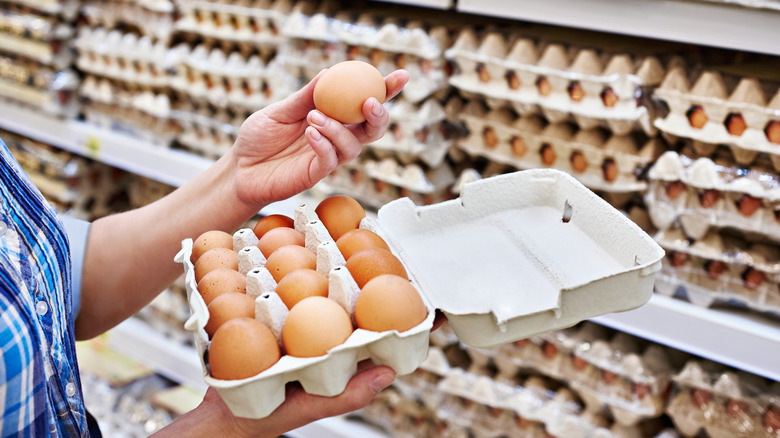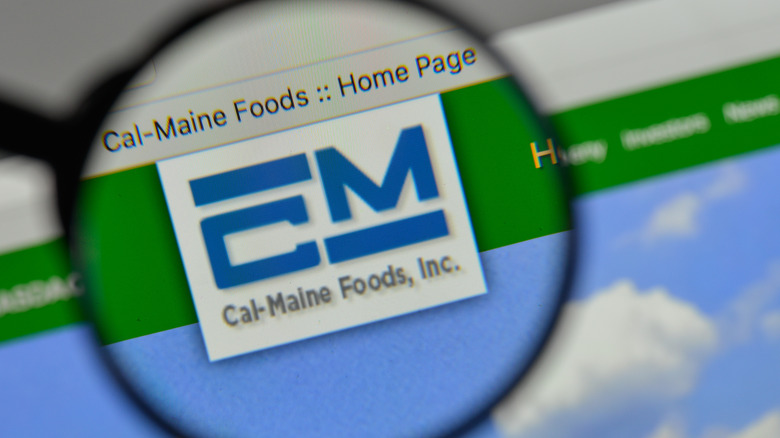Cal-Maine Is Reporting Record Profits Despite Egg Shortage. Here's Why
If you've visited a grocery store in the last six months, then it's almost guaranteed that you've noticed the sudden skyscraper heights of egg prices. The U.S. Bureau of Labor Statistics itself refers to the phenomenon as "Eggflation" (If that doesn't sound like a dystopian nightmare to you, it should.) Many consumers chalk the new price tags up to the egg shortage incited by a nationwide sweep of avian flu. But, reportedly, the outbreak hasn't touched the egg supply of Cal-Maine Foods (via CNN).
The company is the largest egg purveyor in America, single-handedly accounting for an estimated 20% of the country's total egg market. In the fiscal year 2022, Cal-Maine's annual profit hit an impressive $39.5 million — a figure that looks like chump change compared to this year's profit of $323.2 million. As of the previous quarter ending February 25, Cal-Maine saw a 718% spike in profit and a 109% increase in revenue to a whopping $997.5 million.
Why the rapid remuneration? It's not because folks are suddenly buying more eggs: It's because Cal-Maine is keeping prices high and, so far, remaining unchecked.
Cal-Maine continues to sell eggs at a higher price
Last quarter, the average carton of Cal-Maine eggs was priced at $3.30; in February 2022, the same carton was selling for $1.61. Now, it looks like the company's pricing practices are finally rousing suspicion, and not just among consumers — politicians are taking notice, as well.
In January, Farm Action asked the Federal Trade Commission to launch an investigation against Cal-Maine to determine whether the company is engaging in fair pricing practices. According to CNN, Senator Elizabeth Warren sent an open letter to Cal-Maine CEO Adolphus Baker last month questioning the company of hiding behind COVID-19 and avian flu-related hysteria in order to dodge blame or responsibility for price gouging during a recession. "American families working to put food on the table deserve to know whether the increased prices they are paying for eggs represent a legitimate response to reduced supply or out-of-control corporate greed," wrote Warren.
Last month, CNBC reported that wholesale egg prices were beginning to creep downward for the first time since hitting a record high in December 2022. But, at non-wholesale retailers (i.e. regular grocery stores), the price decrease has been much slower to take effect, if it comes at all. In the meantime, consumers will have to wait and see how Cal-Maine responds to these criticisms and whether that response will affect grocery bills.

